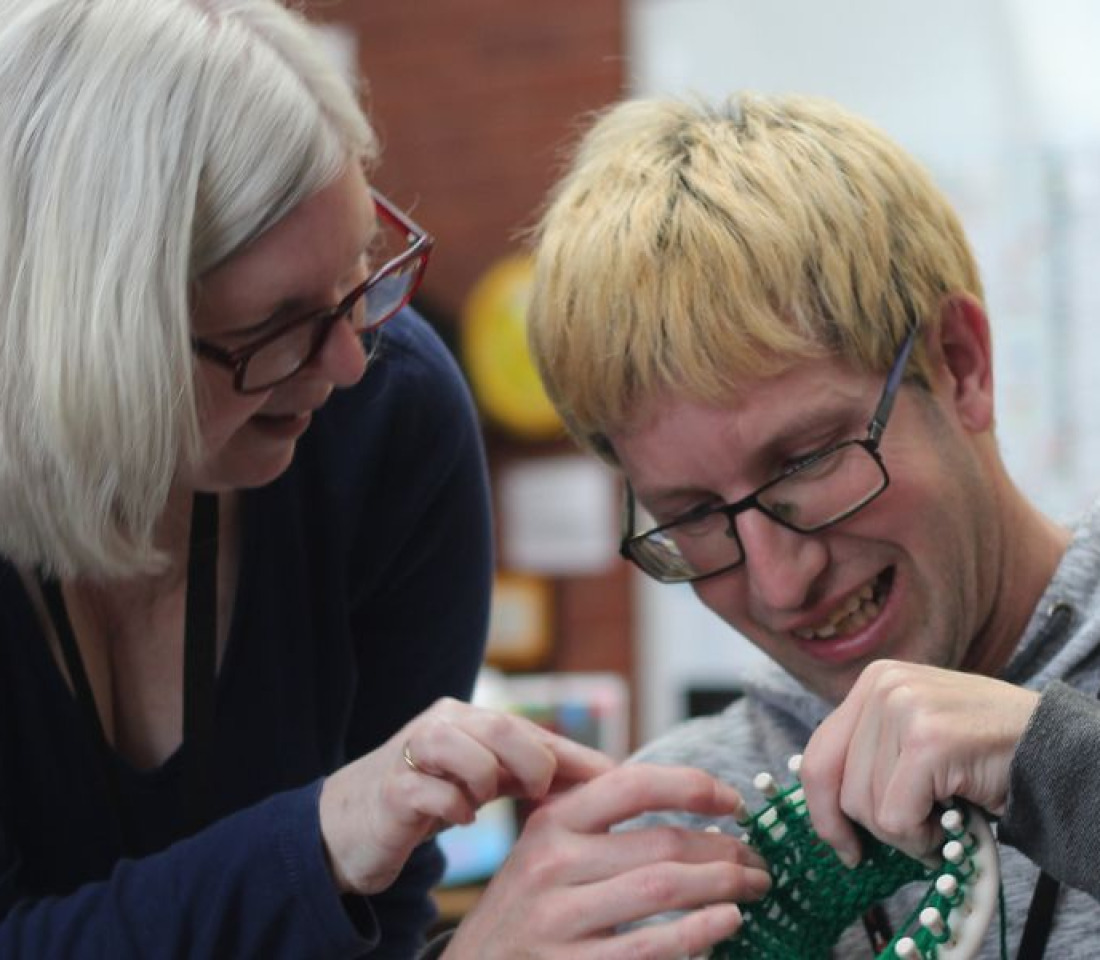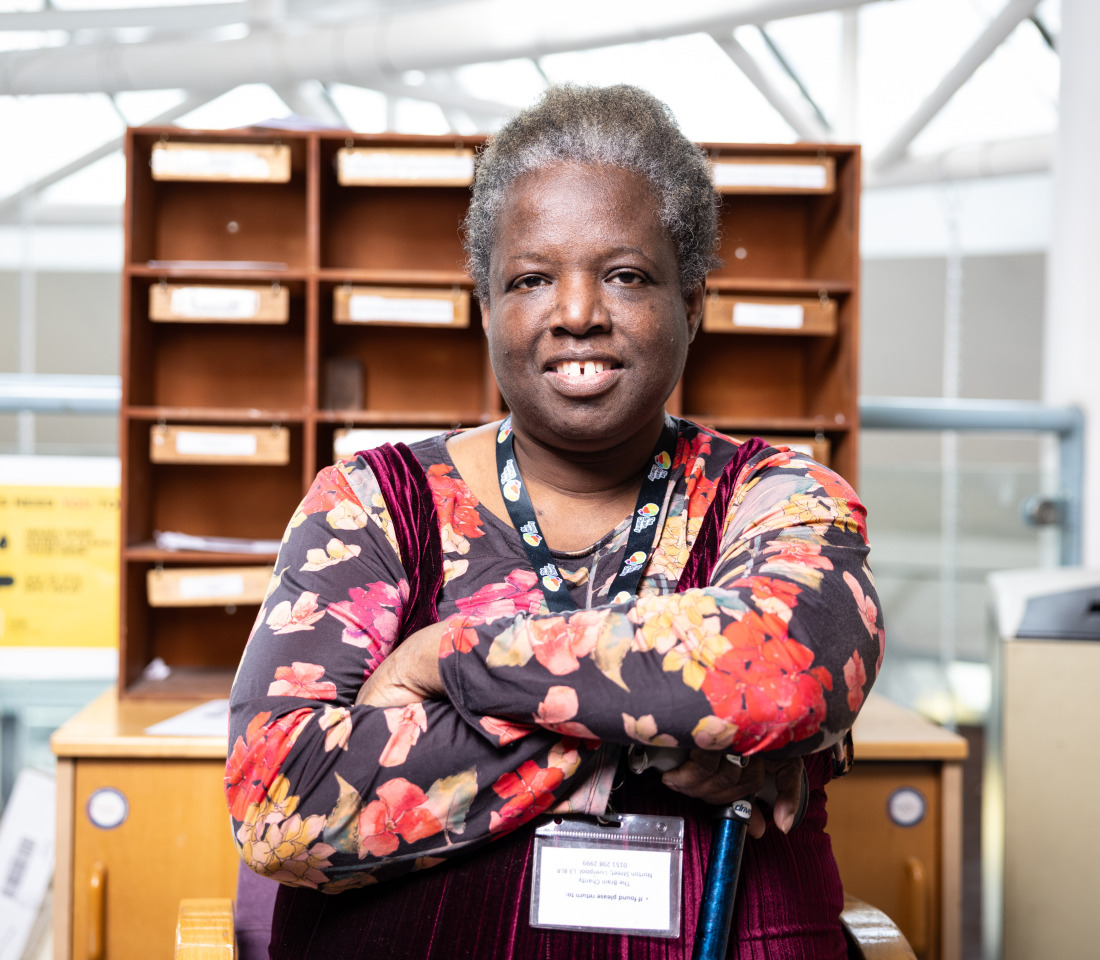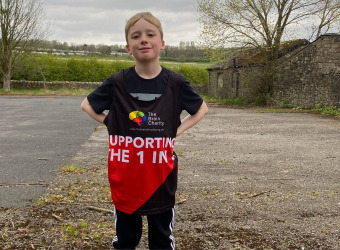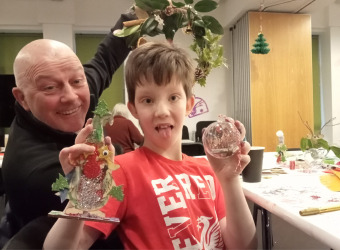
Family faces world’s rarest Lissencephaly case as Grandad raises for charity
"I wanted to turn my pain into something that could help others."
Caring for loved ones with complex health conditions can bring both deep emotional strain and a powerful sense of purpose. But when that caring role changes or ends, it can leave people feeling lost, isolated, and unsure of the future.
Andrew Kane, 58, understands that feeling all too well. Living with osteoarthritis, heart problems, and mental health challenges of his own, he spent many years as the primary carer for his mother, who had long-term heart failure.
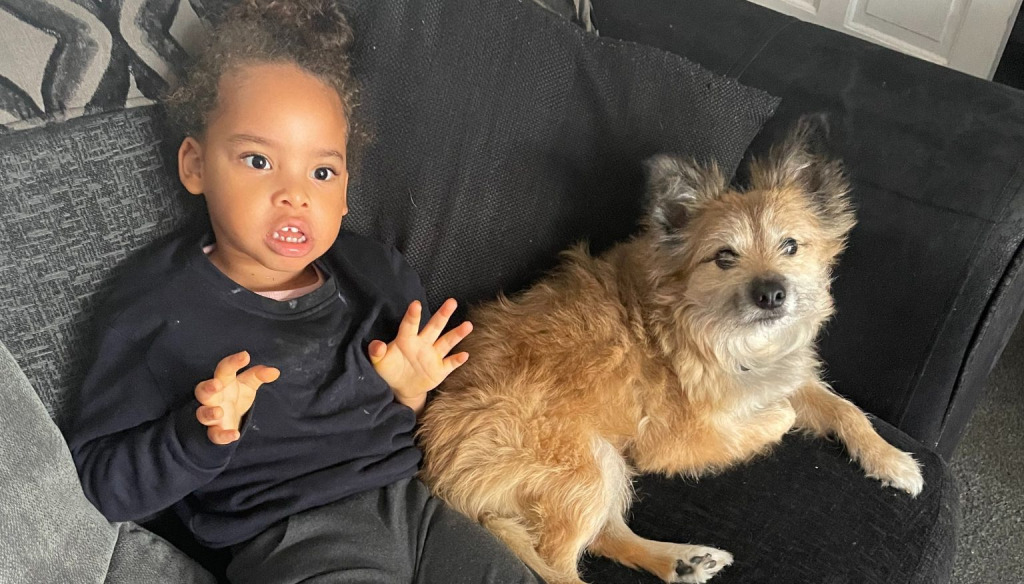
Losing a role, searching for a purpose
When his mother was admitted to the hospital and later diagnosed with schizophrenia and dementia, she was moved into a full-time residential care home. Although Andrew is still regularly called upon to support staff there, he suddenly found himself without the everyday role that had defined so much of his life.
Andrew said:
“When Mum moved into care, it hit me hard. I had been her carer for so long, and without that responsibility, I felt adrift. I struggled a lot mentally, especially with suicidal thoughts. I knew I needed to do something to give myself direction again.”
No longer able to work due to his own health, Andrew was searching for something that could keep him active and emotionally grounded. That’s when he came up with the idea of rebuilding and selling old bikes to raise money for charity.
He decided to donate the proceeds to The Brain Charity, raising an incredible £700 in his first round of bike sales and through a raffle in just ten weeks.
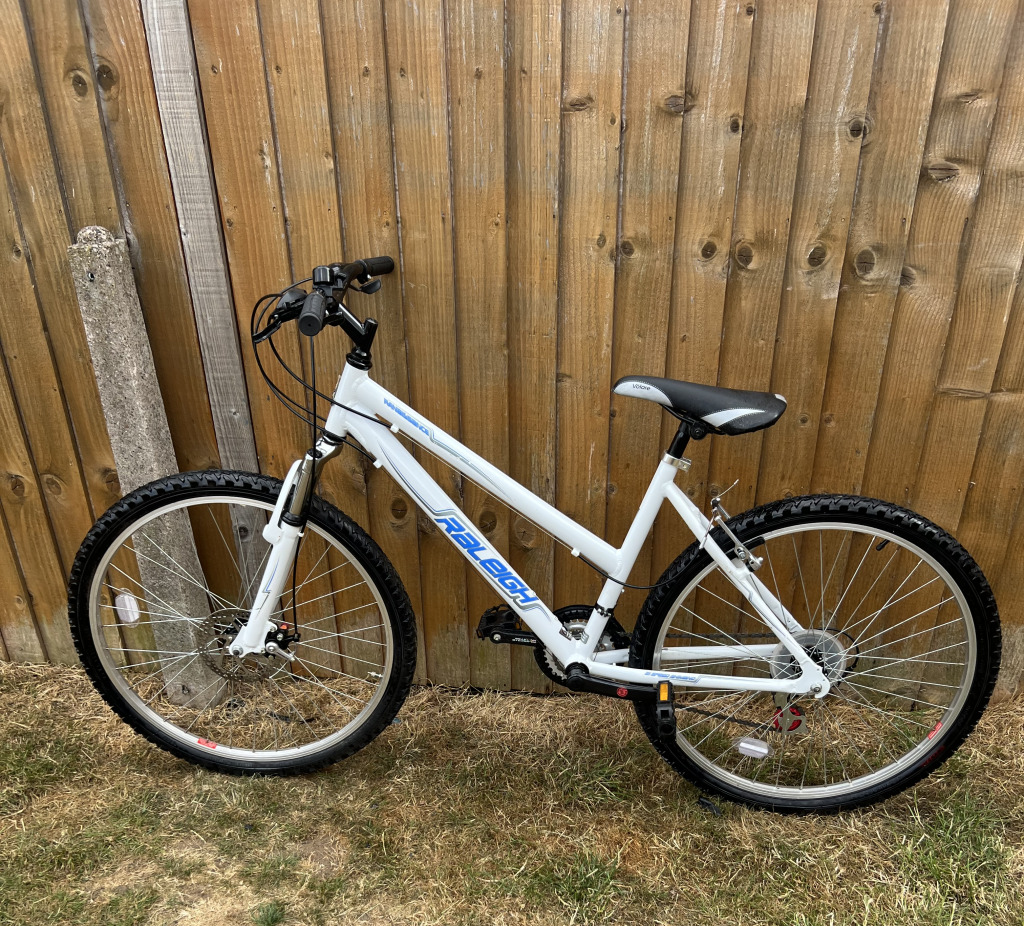
“Fixing up the bikes gave me a purpose. I’d spend time focused on making something useful again—just like I was trying to do with myself. I wanted the money to go towards something that helps people who are struggling, like me and my family.”
A grandfather’s heartbreak
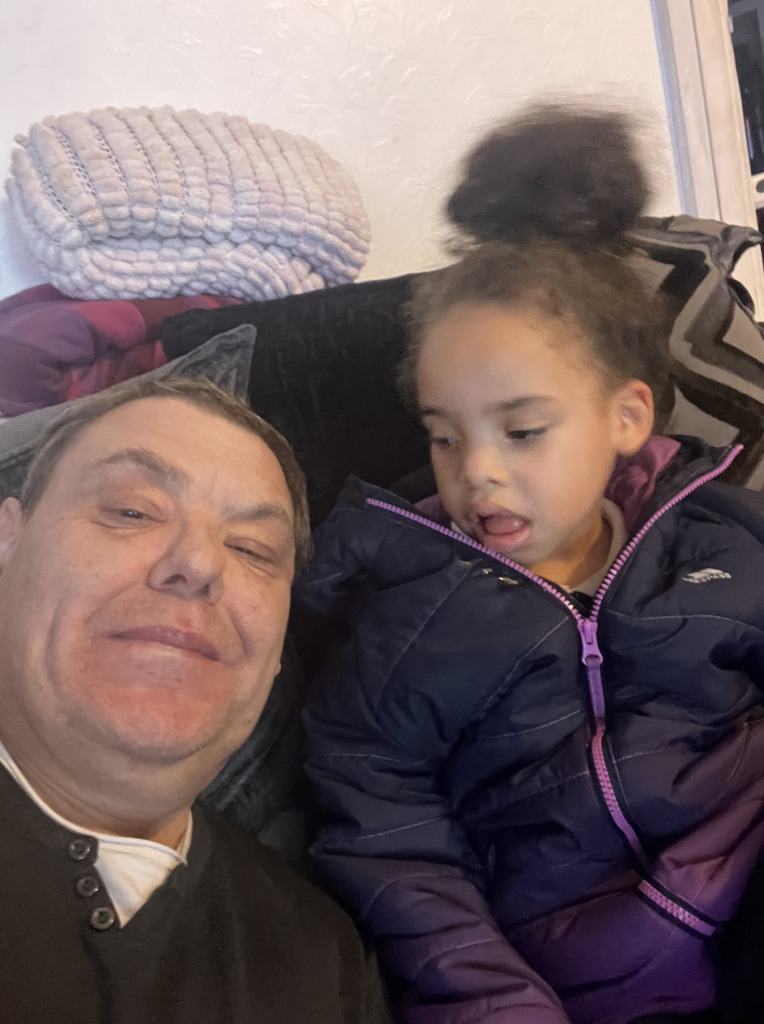
Andrew’s drive to give back is deeply personal. In 2019, his granddaughter Arainah was born. During the pregnancy, Andrew’s daughter, Stacey, sensed something wasn’t right. After a long wait—made even more difficult during the COVID pandemic—his granddaughter was diagnosed with Lissencephaly, a rare brain disorder.
Now 6 years old, she requires round-the-clock care. She can’t walk or talk and experiences frequent seizures. She needs assistance with every aspect of daily life, including eating and toileting, as she cannot swallow without help. Arainah sadly has a life expectancy of only ten years old.
Andrew told us:
“It breaks my heart. She’s so fragile and needs constant support. Her mum, Stacy, has barely had any help from NHS England or the council. She doesn’t have a regular specialist or a social worker. It’s just been so hard.”
What is Lissencephaly?
Lissencephaly is a rare brain disorder where the surface of the brain appears smooth due to abnormal development before birth. This condition can lead to severe developmental delays, muscle spasms, difficulty swallowing, seizures, and a significantly reduced life expectancy, often around ten years. It occurs when nerve cells fail to migrate properly during early brain formation, affecting brain structure and function.
Doing what he can
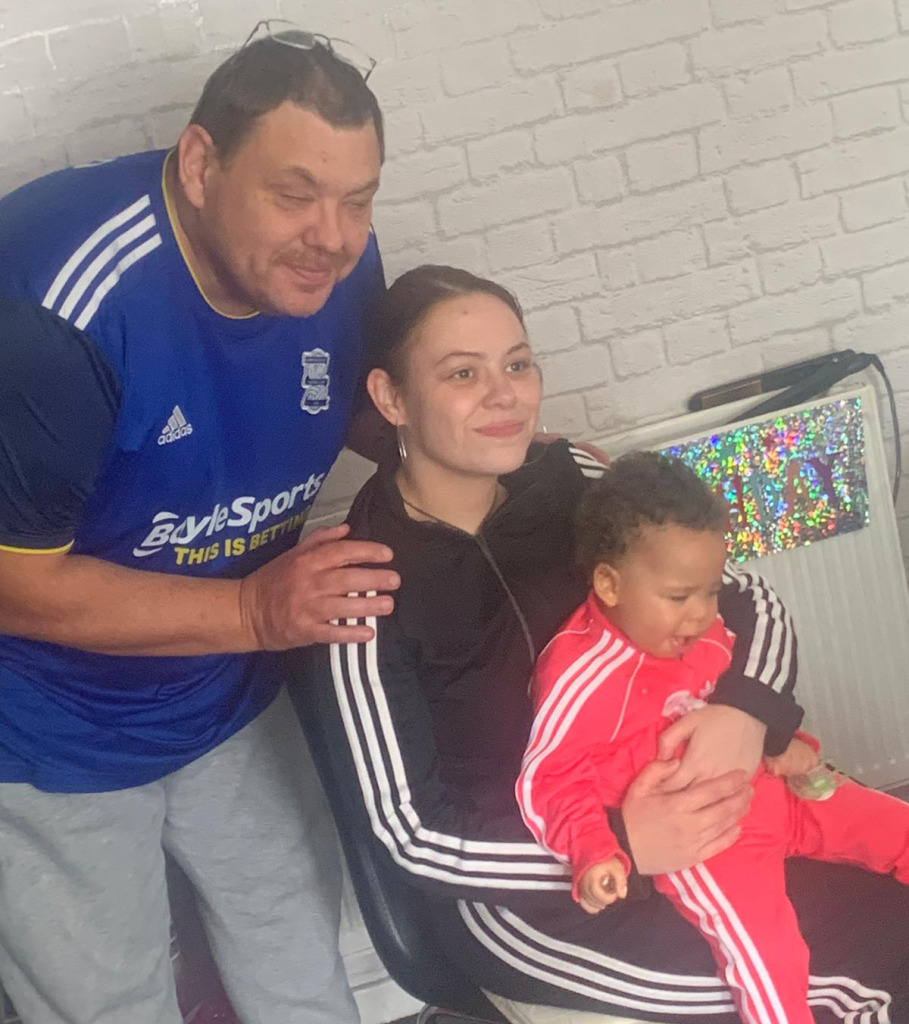
Andrew admits he’s felt helpless at times, not knowing how to ease his granddaughter’s suffering or his daughter’s mental and physical exhaustion. But turning that feeling of helplessness into action helped him regain a sense of agency and hope.
“I couldn’t fix things for my granddaughter. But I realised I could still do something. I could try to help other children and other families through what I do. That thought helped me get through some really dark moments.”
Leading by example in a family facing struggles
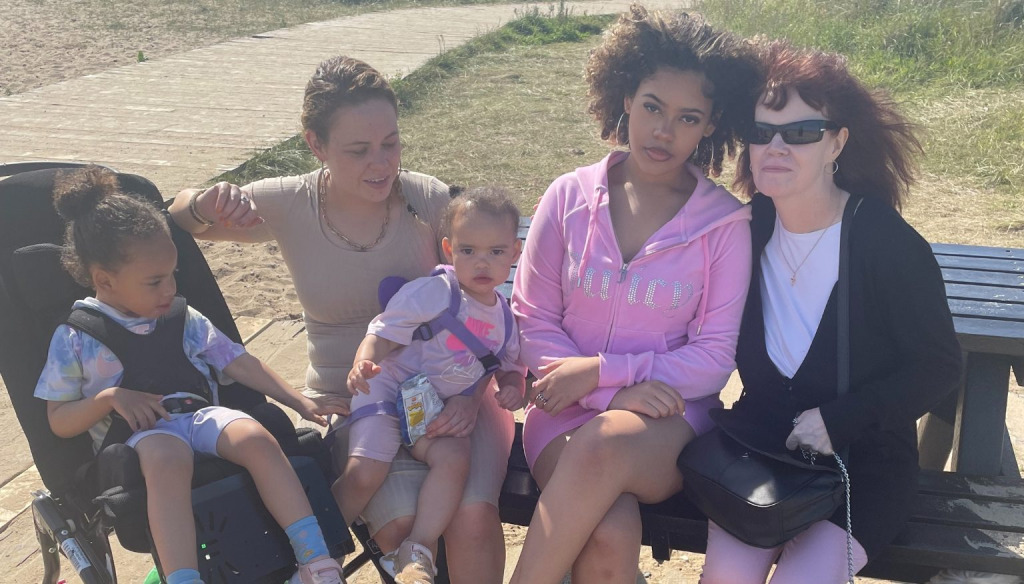
Andrew, a father of three, says mental health struggles have touched every part of his family. He hopes that leading by example—by doing something proactive and meaningful—can be a source of strength and encouragement for them all.
“I wanted to show my family that you can still make a difference, even when things feel impossible. Doing something positive, even something small, can help shift the whole atmosphere around you.”
Community support in unexpected places
In addition to his fundraising, Andrew has received support from local people in his community. One unlikely place was Hicktons Funeral Parlour, where a staff member named Roger offered to help organise a charity day to support Andrew’s efforts and raise awareness.
“I never thought a funeral home would be where we’d find help, but Roger was amazing. Offering to do a charity day meant so much. It showed us we weren’t alone.”
A new chapter, one bike at a time
Andrew continues to rebuild bikes and hopes to raise even more funds to support causes like The Brain Charity and others helping families like his.
Andrew said:
“My body might not work like it used to, but I’ve still got a lot left to give. I’m going to keep doing this for as long as I can. It keeps me going. And maybe, just maybe, it helps someone else keep going too.”
Categories: Fundraising, Guest blogs, Real life stories
Published: 21 July 2025

